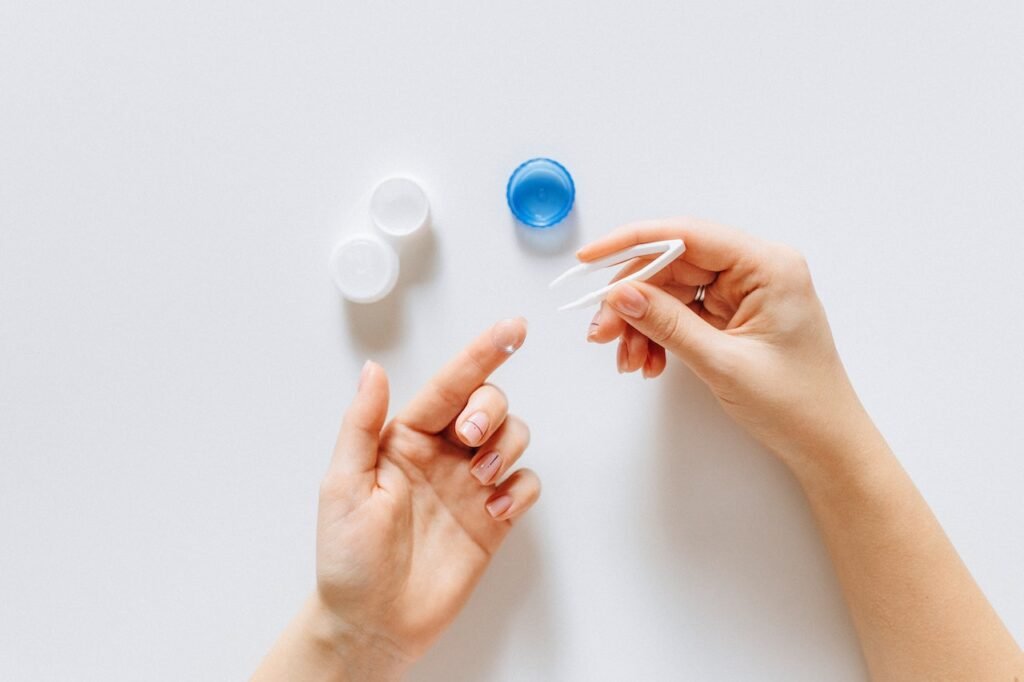How to Care for your Eyes?
Your eyes are an essential part of your body. Most people rely on their eyes to see and understand the world around them. However, some eye diseases can lead to blindness, so early detection and treatment of eye diseases are essential. You should check your eyes as often as your doctor suggests or whenever you develop new vision problems. Taking care of your eye is as necessary as your body. You can easily prevent eye problems if you practice eye care habits daily. Here are the things you should incorporate into your daily routine to care for your eyes.
Eat healthy food to care for your eyes
The same diet that helps your heart and the rest of your body will help your eyes. It is not surprising that your eyes rely on small arteries for oxygen and nutrients, just as your heart depends on much larger streets. Keeping those arteries healthy will help your eyes.
Vitamin A:
Your retina needs plenty of vitamin A to help turn light rays into the images we see. Eat orange-colored vegetables and fruits like carrots, sweet potatoes, and apricots. They are a well-known source of vitamin A.
Vitamin C:
Vitamin C is essential for eye health as it is an antioxidant in nature and helps protect the body from damage caused by unhealthy habits. Fried foods, cigarette smoke, and exposure to the sun produce free radicals, molecules that give and kill eye cells. Vitamin C helps repair and grow new tissue cells. Citrus fruits, peaches, red peppers, tomatoes, and strawberries are good sources of vitamin C.
Vitamin E:
Another important antioxidant is vitamin E, which helps keep cells healthy and is found in avocados, almonds, and sunflower seeds.
Omega-3 fatty acids:
They are suitable for tear function, so eating fish may help people with dry eyes. Diets rich in omega-3 fatty acids from salmon, tuna, and sardines also help reduce the risk of developing eye disease later in life.
Lutein and Zeaxanthin:
Lutein and zeaxanthin are antioxidants in the pigments of leafy green vegetables like Kale and spinach. They are vital in protecting the macula, the eye area that gives us our central, most detailed vision. Eggs also are a good source of these nutrients.
The mineral zinc:
The mineral zinc helps keep the retina healthy and protects the eyes from the harmful effects of light. However, zinc can reduce the amount of copper in the body needed to make red blood cells. You can boost both at once with all kinds of beans, including black-eyed peas, kidney beans, and lima beans.
Practice eye care habits to care for your eyes
Visit eye specialists regularly:
Ophthalmologists or opticians are professionals who specialize in eye health. Check your eyes regularly to keep your eyes healthy. Learning about your eyes and how to prevent eye diseases can give you more control over your health.
If you wear contacts, take steps to prevent eye infections:
Do not wear contact lenses for more than 19 hours. Wearing contact lenses for too long can cause permanent vision loss and extreme eye discomfort. Do not sleep with your contact lenses, as your eyes need oxygen regularly, and lenses block the flow of oxygen to your eyes, especially during sleep.

Use the right kind of eye makeup:
Do not use eye shadows, mascara, and eyeliners that cause an allergic reaction to your eyes, and always clean your makeup brushes, especially those you use to apply eye makeup.
Remove makeup at the end of the day:
Do not go to bed with your eye makeup on. Sleeping with eye makeup clogs the pores around your eyes, which can lead to bacterial infection. Keep a makeup remover pad near your bed to do your nightly cleansing routine.
Use allergy-reducing eye drops:
Using allergen-reducing eye drops during allergy season can help reduce redness and relieve itching.
Wear protective eyewear:
You need to wear eye protection when playing certain sports and working in jobs such as factory work or construction. It helps in protecting your eyes from injuries.
Cucumber slices or green tea bags reduce eye puffiness:
Press cucumber slices or soaked green tea bags against your eyelids for 10-15 minutes before going to sleep at night to help treat under-eye puffiness.

Wear UV protective sunglasses:
Prolonged exposure to UV rays can harm your eyesight, and youth protection can help prevent eyesight loss in later years. So always wear sunglasses when you are outside, and the sun is shining.
Avoid rubbing your eyes:
Your hands are exposed to a lot of dirt, dust, and bacteria, so avoid chafing your hands to your eyes to prevent infection and irritation.
Practice frequent hand washing:
Please wash your hands regularly to keep bacteria in the basin and discourage them from coming in contact with your eyes or contact lenses.
Change your lifestyle to care for your eyes
Maintain a healthy weight:
Obesity increases your risk of developing diabetes. Having diabetes increases your risk of developing diabetic retinopathy and glaucoma.
Get plenty of sleep:
Inadequate sleep leads to eye fatigue, including irritation, double vision, light sensitivity, or pain in the neck, shoulders, or back. Make sure you get enough sleep every night to help prevent eye fatigue. Adults require about 7-8 hours of sleep per night.
Exercise regularly:
You can reduce your chances of developing serious eye diseases like glaucoma and macular degeneration by getting at least 30 minutes of exercise three times per week.
Avoid smoking:
Smoking boosts the danger of developing age-related eye diseases such as macular deterioration and cataracts.
Stay hydrated:
Sufficient liquid intake is vital to your body’s overall health, including the eyes. You prevent your eyes from getting dry and irritated by staying hydrated.
Care of your eyes while using a computer
Keep proper monitor distance:
Computer monitors should be placed about arm’s length away from the eyes. This keeps your eyes from getting tired.
Work in well-lighted areas:
Working and reading in dim light can cause eye strain. Focused and too bright lights may result in glare and put too much stress on the eyes. To make yourself more comfortable, only work and read in areas with sufficient but diffused light.
Make sure that your eyes are level with the screen:
Computer monitors should be positioned 20 degrees below eye level. Looking up or down at a computer screen for long periods can strain your eyes. Position your computer and yourself to look straight at the screen.
Limit your screen timings:
The glow of computer screens induces muscle fatigue in the eyes, either from being too bright or too dark. If possible, specify your time looking at the desktop, tablet, and phone screens.

The 20-20-20 rule:
- Always obey the 20-20-20 rule while working on a computer.
- Every 20 minutes, look away from your computer monitor and fix your eye on an object 20 feet away.
- Blink 20 consecutive times to prevent eye dryness.
- Every 20 minutes, get out of your seat and take 20 steps. It promotes proper posture and blood circulation throughout the body.
Takeaways:
The eyes are one of the most important parts, so protect them. If possible, wear sunglasses or goggles to avoid injury. Keep your eyes healthy by visiting an ophthalmologist regularly, eating nutritious foods, and getting enough sleep. Avoid eye strain from watching TV or computer monitors, reading in low light, and taking regular eye rests to prevent fatigue.
